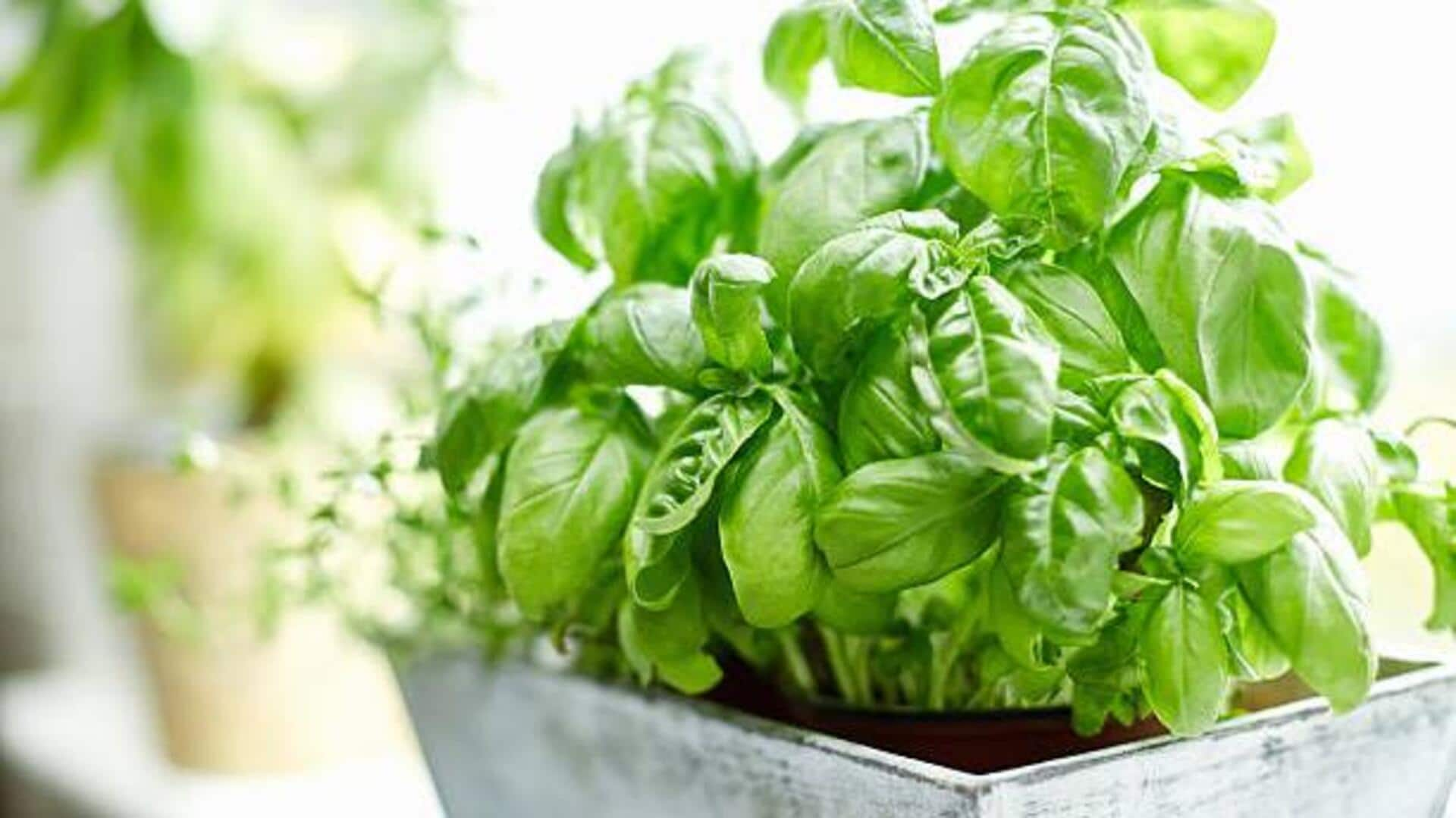
Easy-to-grow herbs for your sunny kitchen window
What's the story
Growing herbs on a sunny windowsill is the best way to keep fresh flavors at your fingertips. These plants not only elevate your food but also lend a touch of greenery to your home. Given just the right amount of sunlight, some herbs flourish indoors, making them ideal for your window garden. Here are some herbs that thrive on sunny spots and are easy to maintain with little effort.
Basil
Basil: A versatile favorite
Basil is another crowd favorite for indoor herb gardens, thanks to its adaptability and fragrant leaves. It needs roughly six hours of sunlight every day, which makes it perfect for a bright window. Watering frequently is a must, but let the soil drain properly so that it doesn't rot. Pinching off the top leaves promotes bushier growth and stops it from flowering, which can change its taste.
Rosemary
Rosemary: Hardy and fragrant
Rosemary also thrives in bright light and slightly dry conditions between waterings. This woody herb not only adds a delightful aroma to any room, but is also a culinary versatile. Its needle-like leaves can be used to season dishes or create fragrant sachets. Just ensure good air circulation around rosemary to avoid mildew.
Mint
Mint: Refreshing and resilient
Mint is famous for its refreshing scent and vigorous growth habits. It thrives in full sun but can tolerate partial shade, if needed. Keep mint well-watered since it prefers moist soil conditions, but avoid waterlogging the roots. Regular pruning helps keep its spread in check, since mint can quickly turn invasive if left unchecked.
Thyme
Thyme: Compact and flavorful
Thyme thrives on sunny windowsills. It needs moderate temperatures and plenty of sunlight. Its compact size is perfect for small spaces. Water it sparingly, allowing the soil to dry out before watering again to avoid root rot. Proper drainage is important for its health and development, making thyme a low-maintenance choice for your indoor gardens.